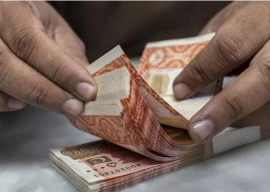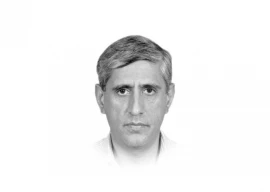
The interim government has decided to commence the process of approving new development projects – a move that may not align well with the mandate of the caretaker political setup but is necessary for expediting the clearance of much-needed foreign loans.
Prime Minister Anwaarul Haq Kakar has reconstituted the Executive Committee of the National Economic Council (ECNEC) – the country’s highest project approval authority – to approve schemes in the development sector. The Interim Finance Minister Dr Shamshad Akhtar has been appointed as the chairperson, and its members include three federal ministers and four provincial finance ministers.
According to sources, the Planning Commission may also convene the Central Development Working Party (CDWP) meeting next week for concept clearance of the Asian Development Bank (ADB)-funded $300 million loan for so-called reforms in the Federal Board of Revenue (FBR).
However, ADB will be investing $300 million in an area that does not need foreign currency but a strong commitment to reform. The World Bank (WB) has already provided a $400 million loan for reforms in the FBR, yet little has practically changed. Part of the WB foreign loan will be used to procure vehicles. The interim setup’s decision to reconstitute the ECNEC and convene a CDWP meeting does not strictly fall within the mandate of the caretaker setup, which is limited to taking steps only in ongoing economic initiatives and projects.
However, the approval of the working papers and concept papers for some of the foreign-funded projects and budget support loans are required for disbursements, sources mentioned. At the top of the list is the $300 million ADB-funded Domestic Resource Mobilisation budget-support loan.
Sources added that Finance Minister Akhtar held a virtual meeting with the Director-General of ADB this week and requested approval of the $300 million loan within this month. However, ADB did not entertain Pakistan’s request, citing pending administrative actions on both Pakistan’s and the lending agency’s part.
Pakistan’s foreign exchange reserves, which had reached $8.5 billion with $5 billion in foreign loans, have started to decline again. As of last week, reserves had decreased to $7.8 billion.
By not learning from previous wrong decisions to take loans for tax reforms, the government is once again seeking a minimum $300 million loan for tax reforms. The actions that Pakistan has agreed to take in return for the loan do not require even a single US dollar; instead, these steps demand strong political will and an efficient tax machinery.
Approval of the $300 million loan was tentatively planned for the fourth quarter of the last fiscal year, but ADB could not approve the loan due to Pakistan’s failure to revive the International Monetary Fund (IMF) programme and incomplete actions by the Ministry of Finance’s external finance wing.
Pakistan has only a two-month window to get this loan approved, as the next IMF loan review is due in November. Any delay in the approval of the first IMF review will also affect the ADB loan, said the sources. Finance Ministry sources said that the ADB informed them that approval of the $300 million loan in September may not be possible due to pending approval of the concept paper.
The proposed Improved Domestic Resource Mobilisation Reform Programme aims to address major constraints in mobilising larger resources for enhancing productive investment. This will be achieved through improvements in domestic revenue mobilisation, the quality of public expenditure, and cash management to enhance the efficiency of scarce public resources, as well as the mobilisation and utilisation of domestic savings and foreign direct investment.
Sources mentioned that Pakistan was interested in obtaining a $180 million loan for the Women Inclusive Finance programme, but discussions with ADB were ongoing, and the amount had not yet been finalised.
Senior officials in the finance ministry emphasised that the extended caretaker setup would have hindered the inflow of foreign loans, necessitating the reactivation of forums like ECNEC and CDWP. They noted that one project funded by ADB, with a loan of $360 million, required final approval from the ECNEC to address certain objections.
Sources added that ADB’s Country Director, Yong Ye, had met with Pakistani authorities two weeks ago. The lender had concerns that the current legal amendments limited the caretaker government’s mandate to only ongoing projects, potentially affecting the approval of schemes.
Published in The Express Tribune, September 3rd, 2023.
Like Business on Facebook, follow @TribuneBiz on Twitter to stay informed and join in the conversation.





1727911561-0/Untitled-design-(37)1727911561-0-165x106.webp)
















COMMENTS
Comments are moderated and generally will be posted if they are on-topic and not abusive.
For more information, please see our Comments FAQ